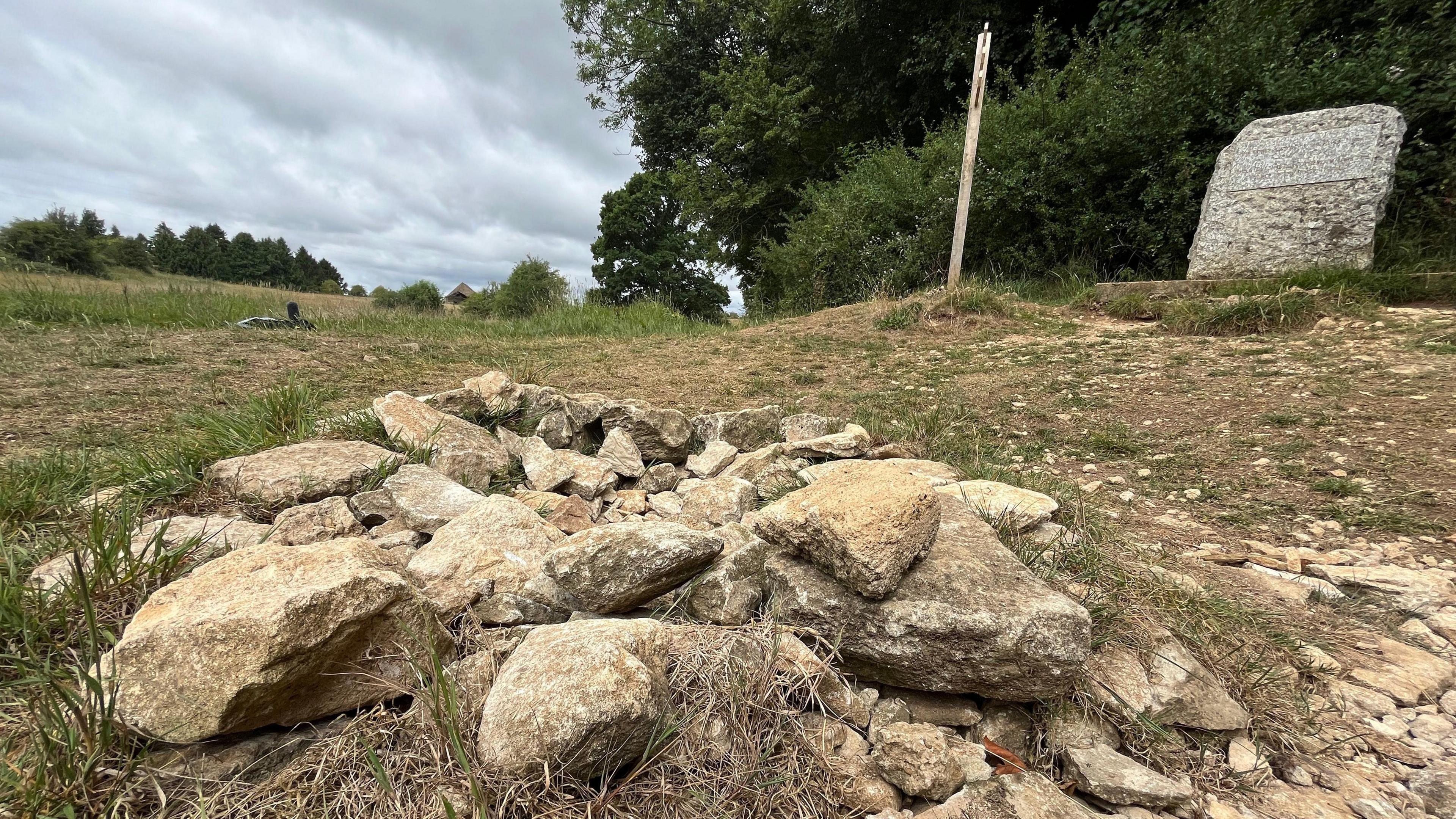Animal charities warn of 'panic' over hay shortage
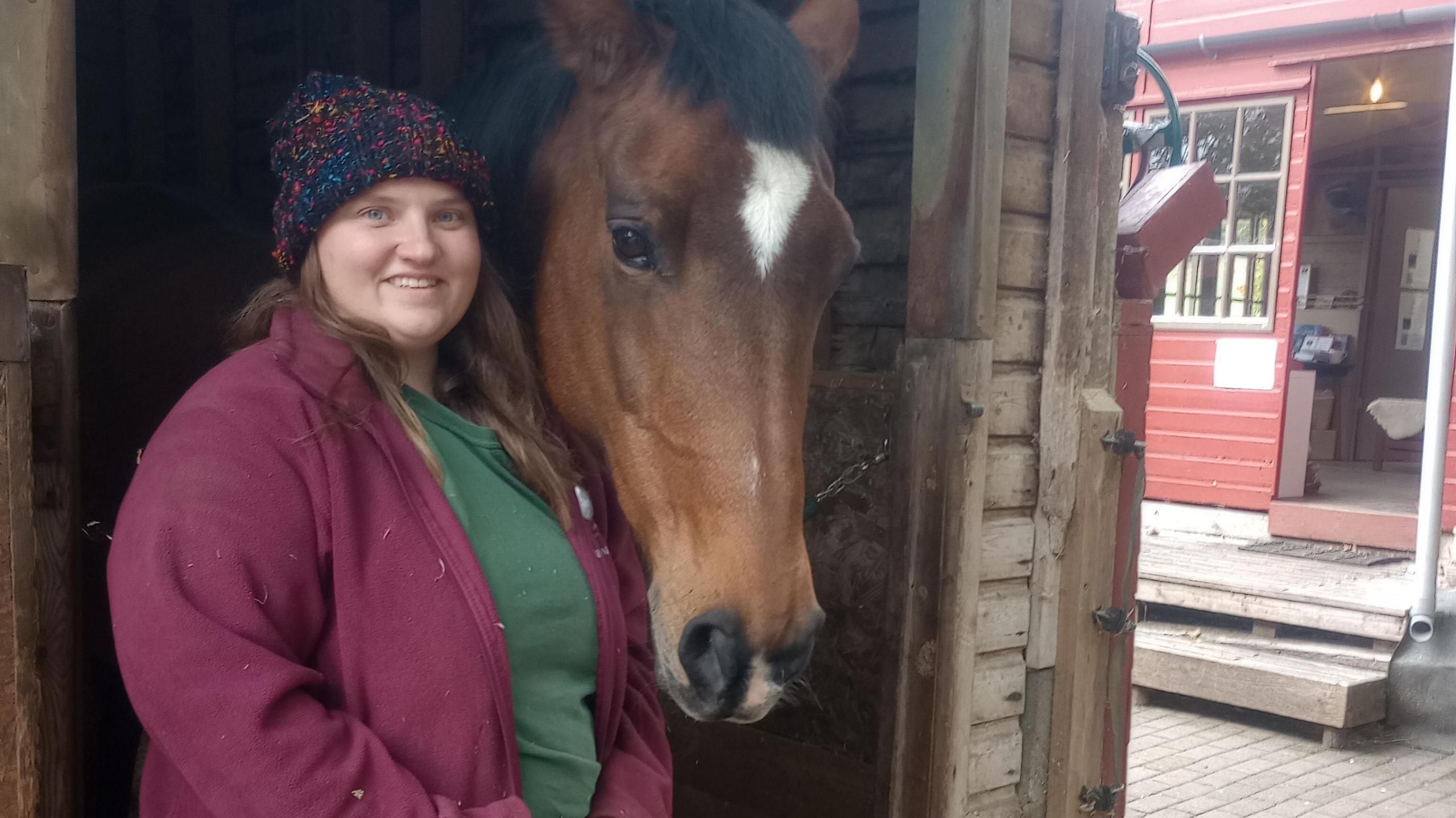
Sarah Jenkinson is yard manager at Red Horse Foundation for horses like Monica
- Published
An animal charity in Gloucestershire says there is "panic" in the equestrian community over a severe shortage of hay following the dry summer.
Red Horse Foundation in Thrupp, near Stroud, offers animal therapy to improve mental health.
The charity is now asking for donations to help keep its horses fed through winter. "The yields were down over 50% this year for farmers," said Sarah Jenkinson, yard manager at the charity.
Nailsworth Donkey Sanctuary says it is also worried about the financial impact of the shortage.
'Quite a fear'
This spring, Gloucestershire was the driest county in the west of England, Met Office statistics show.
The dry weather continued throughout the summer, leaving farmers with smaller harvests than usual.
"It's a scary time as a small charity," Ms Jenkinson said. "There's quite a fear and panic, I would say, in the Gloucestershire area for horse owners," she added.
Animal groups and owners are having to buy hay from further afield at about double the cost, she explained.
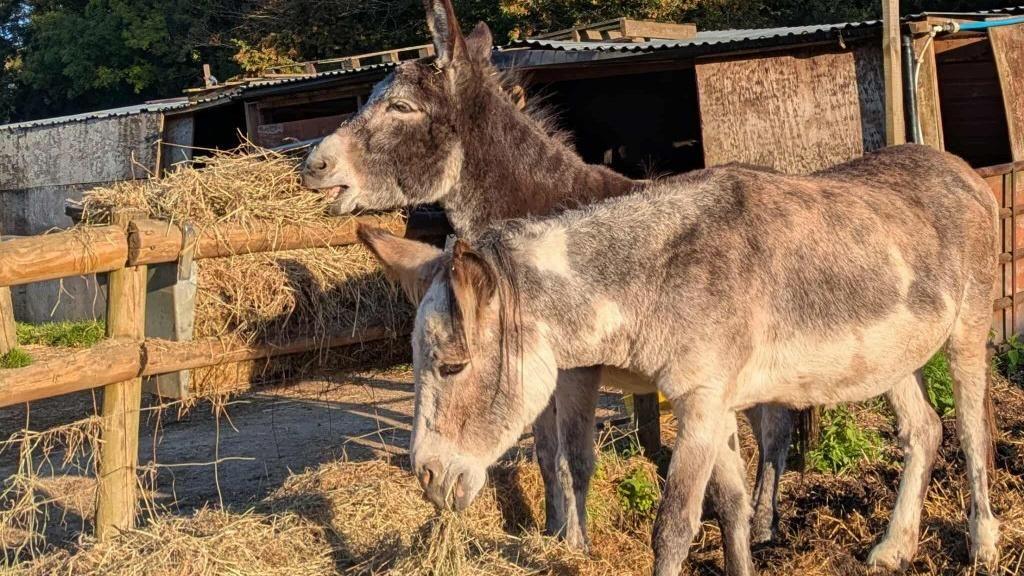
Donkeys at Nailsworth Donkey Sanctuary have a dwindling supply of hay, the charity says
Dawn Cockell runs Nailsworth Donkey Sanctuary with her partner. She said their local supplier had also cut less than half the hay than would usually be expected this year.
"Everybody's struggling this year," Ms Cockell said.
The sanctuary has been adding haylage and meadow hay into its feed so its hay stock will last longer.
Ms Cockell added she was "quite worried" about how long their supply was going to last.
- Published28 August
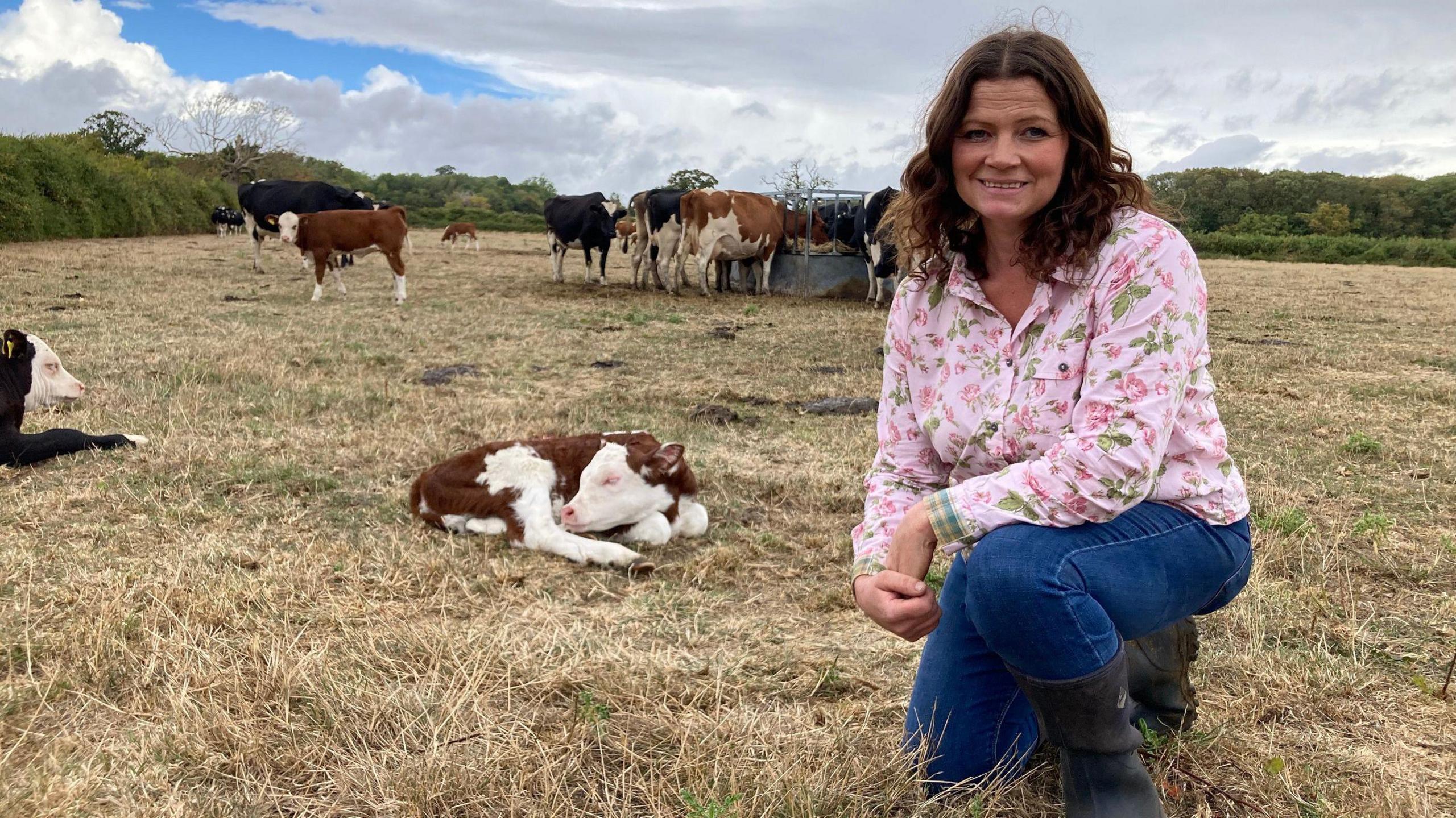
- Published10 July
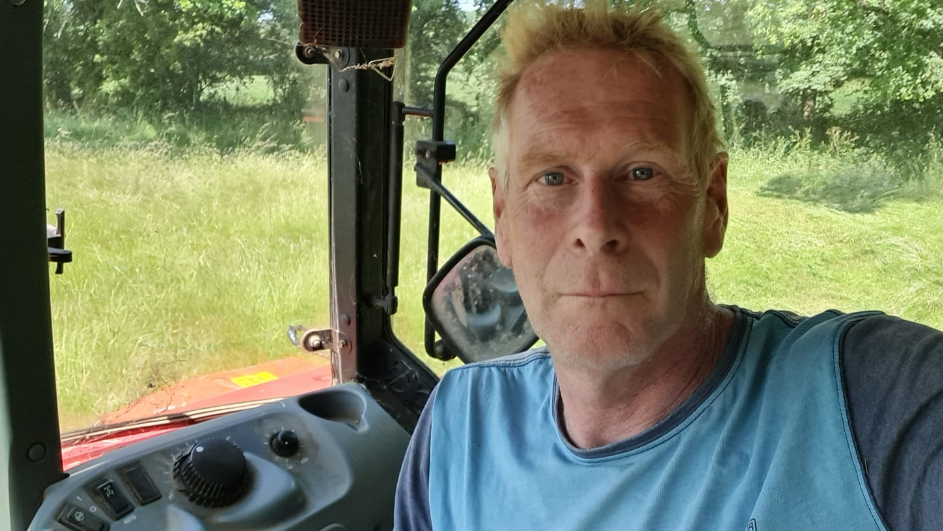
- Published6 July
